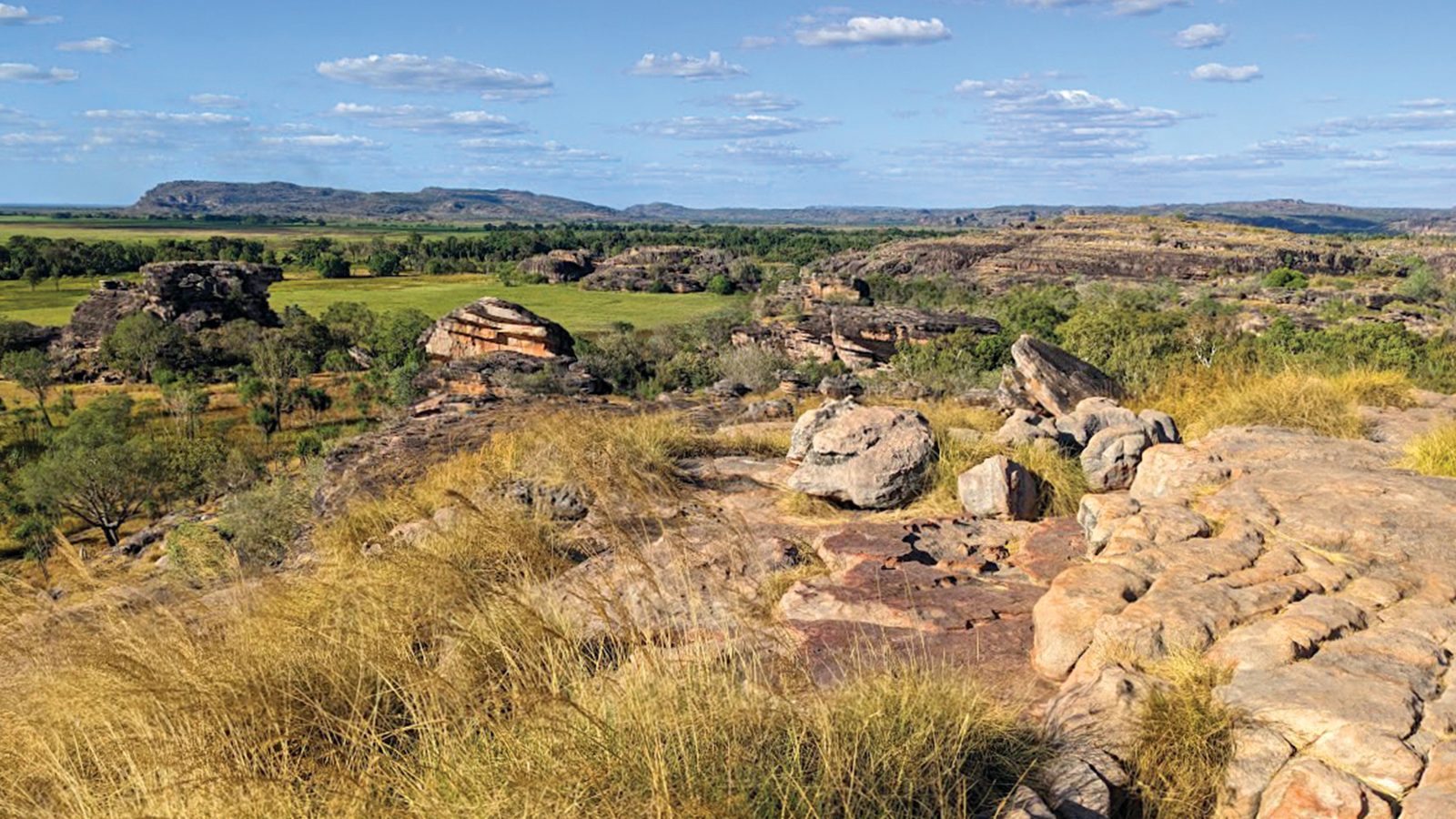The Northern Territory is on the frontline of intensifying heat, extreme weather events, and rising sea levels. Remote communities and homelands across the Territory are particularly at risk of these impacts with many Aboriginal communities already facing food insecurity, a lack of safe drinking water and access to reliable, affordable electricity.

Ubirr, Kakadu National Park, one of the ecosystems in the Northern Territory experiencing the effects of climate change
The Northern Territory has some of the most intensely collapsing ecosystems in Australia - the savanna woodlands and mangroves are careening towards extinction. Climate change is impacting our lives in more ways than we know; building knowledge and awareness is a crucial step to action.
Northern Territory Climate Justice Coordinator at Jesuit Social Services
This understanding prompted Jesuit Social Services to help establish a Territory-based Climate Justice Alliance in 2021. Facilitated by Jesuit Social Services, the Climate Justice Alliance includes a number of climate, environmental, and community-led organisations, as well as unions.
Over 18 months, the Alliance built relationships across the Territory, and ran a series of workshops and forums in Alice Springs and Darwin. As a result of COVID-19, the work of the Alliance slowed, but has now reconvened, with renewed energy and vigour to work towards justice for all.
A hope of the Alliance is to help build climate literacy amongst the community and community sector in the Northern Territory. “We’ve all heard of climate change”, explains Ned. “But we understand there can be obstacles to people taking action, including a lack of understanding of climate science and feeling overwhelmed in the face of such a monumental problem.
Climate literacy refers to people’s level of knowledge and awareness of climate change, and its impacts. In particular, people already facing disadvantage are most likely to be impacted by climate change, yet least likely able to influence change.
Northern Territory Climate Justice Coordinator at Jesuit Social Services
Today, the Alliance continues to build on this important work and strives towards a just transition – one that focuses on adapting to the impacts of climate change, and on the alternative economic futures needed to ensure justice for people and planet.
The Alliance wants to see climate change planning and adaptation integrated into the strategic planning of local governments, community services, community health, and other local organisations. Ned gives the example that people who live with a disability are two to four times more likely to be injured or killed in an extreme weather event due to existing health inequities and a lack of access to decision-making that is responsive to their needs. These sector-specific facts can help organisations understand the breadth and depth of climate risks, and plan accordingly, for the wellbeing of the people they work with and the planet.
To be effective, ecological justice must be inclusive, community-led, and place-based. The Climate Justice Alliance embodies these principles to advocate for justice in the Northern Territory.






